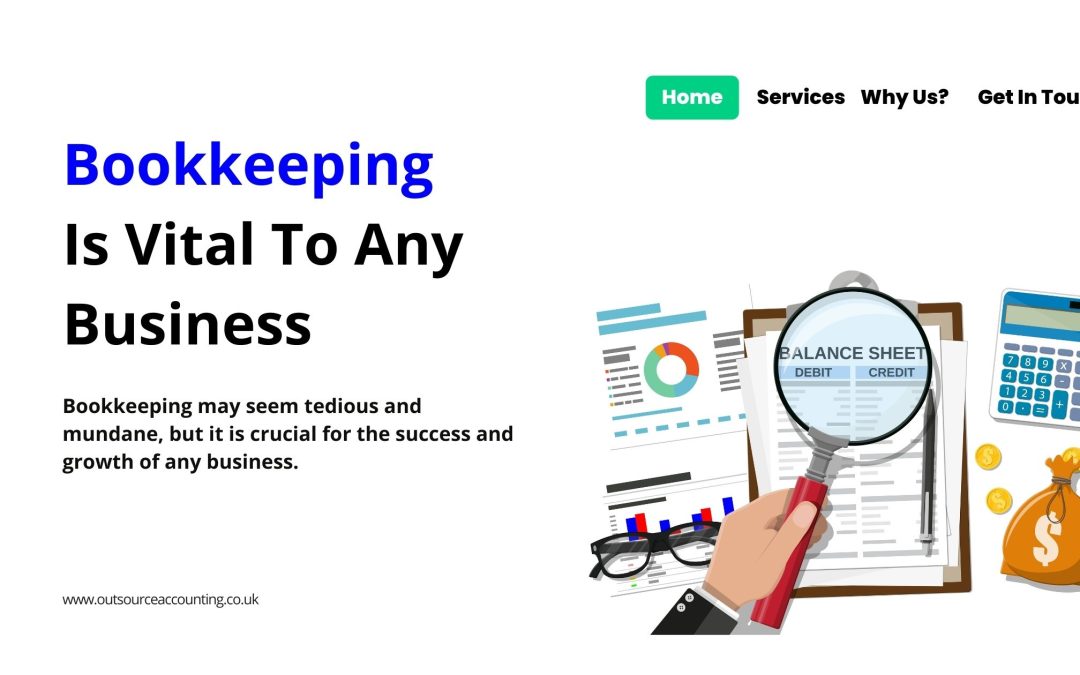Bookkeeping is vital to any business, as it involves keeping track of all financial transactions and ensuring the company’s financial health. Many entrepreneurs need to pay more attention to the importance of bookkeeping, leading to complications and potential problems in the long run. When done efficiently, bookkeeping can help streamline business finances and lead to better decision-making. This blog post will discuss how bookkeeping can streamline your finances and why it should be essential to your business operations.
I. Organizing and Managing Financial Records
The first and most crucial step in bookkeeping is organising and managing financial records. Bookkeeping systematically records all financial transactions such as sales, purchases, and expenses. By keeping track of all transactions, you can have an up-to-date picture of your business’s financial health. It also helps identify any errors or discrepancies in the financial records, allowing you to rectify them before they snowball into more significant problems.
II. Accurate Budgeting and Forecasting
Proper bookkeeping also allows for accurate budgeting and forecasting. By having all financial records organised and up-to-date, you can assess the financial health of your business and make informed decisions about budget allocation and forecasting. With accurate financial data, you can identify overspending or underutilisation of funds and make necessary adjustments to optimise your business’s financial performance.
III. Easy Tax Preparation
During tax season, many business owners are stressed and scrambling to gather all the necessary financial documents for tax preparation. With proper bookkeeping, you can make tax preparation a breeze. By maintaining accurate records of all revenue and expenses, you can easily generate financial statements required for tax filing and avoid any potential penalties or audits due to errors or discrepancies.
IV. Identify and Minimize Excess Costs
Bookkeeping can also help identify unnecessary and excess costs that may drain your business’s finances. By keeping track of all expenses, you can analyse your spending and identify areas of overspending. This can help you reduce unnecessary costs and improve your profit margins.
V. Facilitates Decision-Making
Bookkeeping can also help streamline your business finances by providing accurate and timely financial data necessary for decision-making. With organised financial records and up-to-date financial statements, you can analyse your business’s financial performance and make informed decisions regarding future investments, growth strategies, or cost-cutting measures.
VI. Improve Cash Flow Management
Cash flow is the backbone of any business, and proper bookkeeping can help improve cash flow management. By keeping track of all financial transactions, you can identify any potential cash flow issues and take proactive measures to address them. This can help ensure a continuous cash flow and avoid financial roadblocks hindering your business’s operations.
VII. Simplifies Audits and Due Diligence
Whether you are preparing for a potential merger or seeking funding from investors, proper bookkeeping can simplify the process. Having organised and accurate financial records allows. you to efficiently provide the necessary financial data for audits or due diligence processes. This saves time and improves the perception of your business’s financial stability and credibility.
Final Words:
In conclusion, bookkeeping may seem tedious and mundane, but it is crucial for the success and growth of any business. By organising and managing financial records with reliable accountants, accurate budgeting and forecasting, easy tax preparation, identifying and minimising excess costs, facilitating decision-making, improving cash flow management, and simplifying audits and due diligence, bookkeeping can streamline your business finances and help you achieve your financial goals. Therefore, it is essential to prioritise bookkeeping as an integral part of your business operations.
